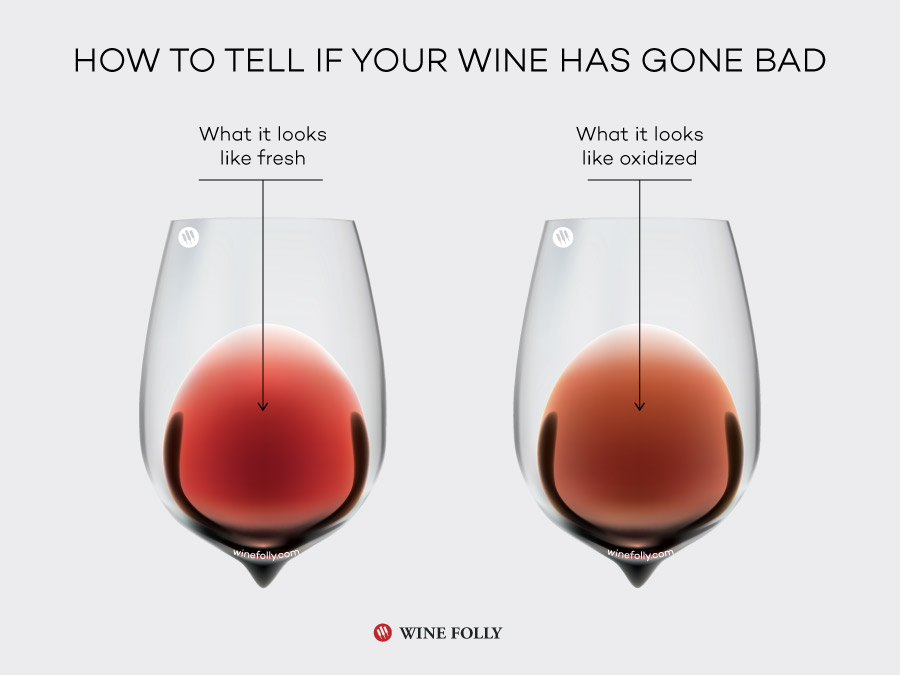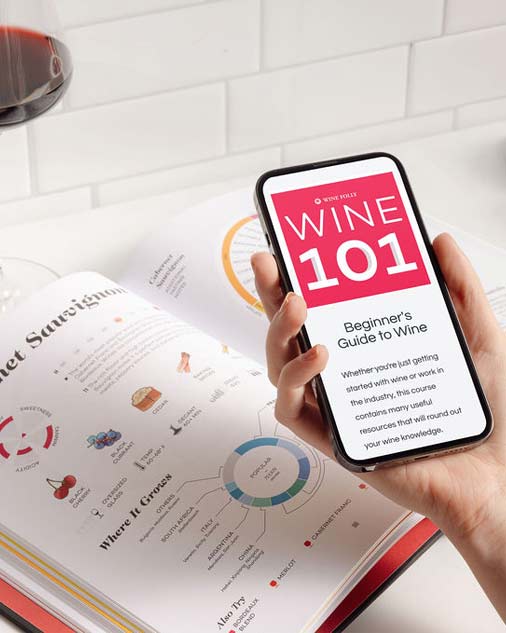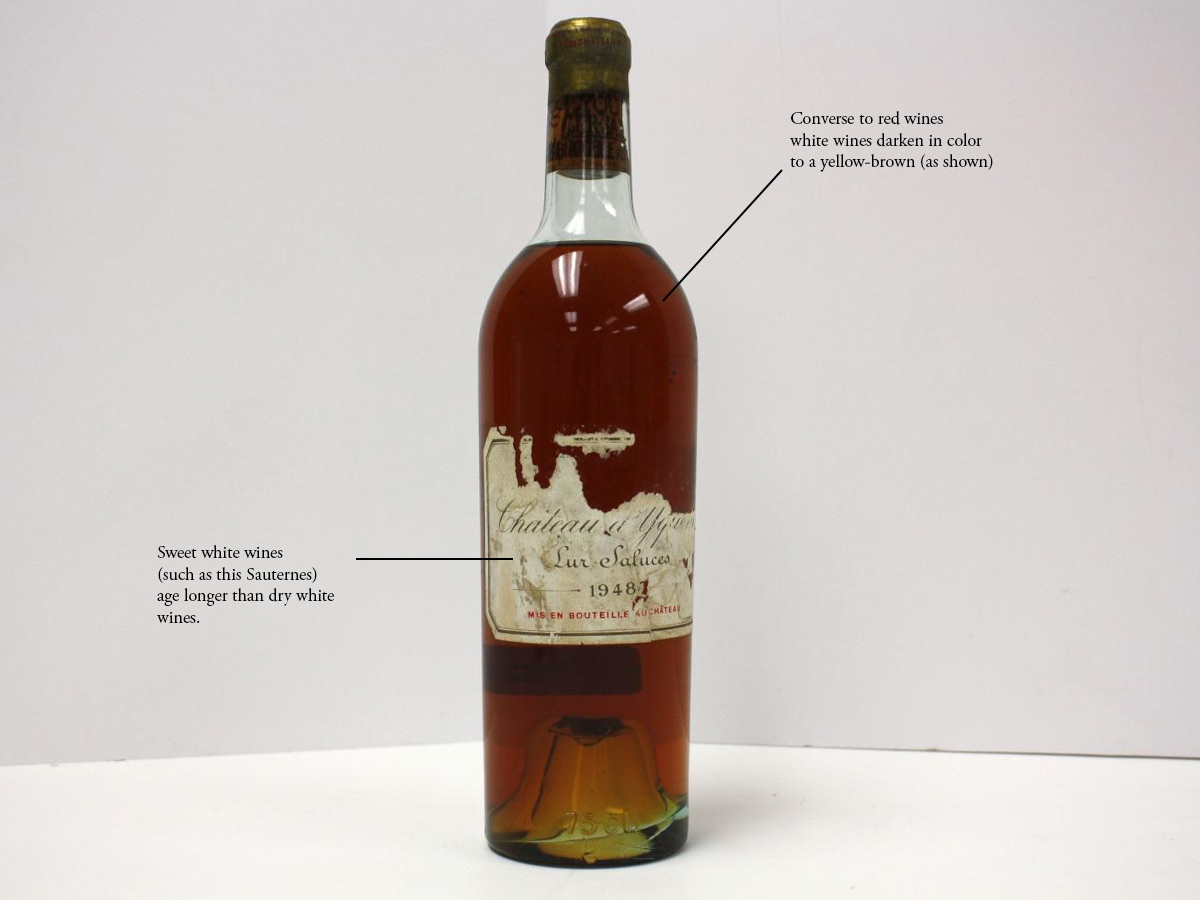Does Wine Continue to Age in the Bottle
How do you tell if a wine will improve with age? Oddly enough–and thank goodness, just spending more money on a bottle won't guarantee that it will age well. Instead, there are a few key characteristics to look for in cellar-worthy wines.
Reality Check: Most Wines Aren't Designed to Age
Contrary to popular belief, most wines these days don't improve with age. In fact, the majority of wine we see in stores today won't age for very long at all. As a general rule, you can assume that:
- Everyday red wines have about a 5 year life span
- Everyday white and rosé wines have about a 2–3 year life span

Burgundy wines that show serious levels of oxidation. These wines were repossessed from Rudy Kurniawan's collection.
Key Characteristics of Age-Worthy Wines
Here are some key traits of wines that are age-worthy, along with tips on storing wine for longer periods of time.
Red Wines

The color of a Napa Valley Merlot throughout different parts of its lifecycle. See more.
Color
The density of the color (how opaque it is) isn't necessarily as important as the vibrancy of the color. Red wines that have prematurely aged often appear more dull and sometimes have a more yellowish tint at the rim. See the full color of wine chart for more detail.

Buy the book, get a course.
Get the Wine 101 Course ($50 value) FREE with the purchase of Wine Folly: Magnum Edition.
Get My Course
Tannin
Red wines that age well generally have higher tannins (the astringent, bitter taste in wine). Tannins act as antioxidants and help preserve freshness in red wines. Of course, some wines that taste better in 10 or 15 years are a bit astringent when they're first released. Two classic examples of red wines that have high tannin on release would be Barolo and Bordeaux.
Acidity
While there is no exact pH that indicates age-worthiness, red wines that have higher acidity (a lower pH) generally last longer. A low pH acts as a buffer against chemical changes that break down wine including oxidation. Learn more about pH in wine.
Alcohol-Level
Fortified wines are wines with added spirits (including Port) that have around 20% Alcohol by Volume (ABV). The fortification process produces some of the most age-worthy red wines of them all. For example, there are still some Maury (a French fortified sweet red) wines that can be found from the 1920s that are still quite vibrant!
Complexity
A wine that isn't complex to begin with won't become complex with age.

White Wines
Color
Since white wines do not have anthocyanin (the red pigment), the rules for white wine are a bit different. White wines darken as they oxidize and thus, many age-worthy white wines start out nearly clear in color. White wines are usually over the hill (oxidized) when they turn yellowish brown.
Acidity
Just like with red wines, white wines with a lower pH (higher acidity), are more resistant to chemical changes that occur with age, including oxidation and the development of volatile acidity.
Sweetness
At higher levels, sweetness acts as a preservative and increases the age-ability of white wines. This is why some dessert wines such as Sauternes and Tokaji ("Toe-Kye") have been noted to age for 50 or more years.
Tips on Aging Wine
If you live in a place where your home exceeds 70 °F (27 °C), using a wine fridge or underground storage is highly recommended. It's been shown that fluctuating temperatures will accelerate aging at a rate of 4 times faster than the consistent climate of a cellar.
If you're serious and hope to store wines long term, it's a good idea to create a climate controlled space with a constant 54° F (12 °C) and 75% humidity.
If the wine has a natural cork, make sure you store it on its side to keep the cork from drying out and shriveling.
Source: https://winefolly.com/tips/how-to-tell-if-a-wine-is-age-worthy/
0 Response to "Does Wine Continue to Age in the Bottle"
Post a Comment